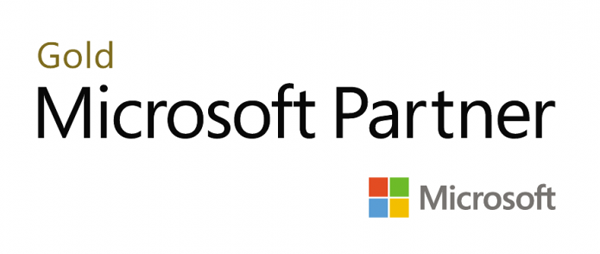Fundamentals of a Windows Server Infrastructure, On Demand 10967
- Seminar
- E-Learning
- Zurzeit keine Termine
- 40 Unterrichtseinheiten
- Teilnahmebescheinigung
Seminarnummer: 29433
Learn the fundamental knowledge and skills that you need to build a Windows Server infrastructure with Windows Server 2012.
Nutzen
In dieser MOC on Demand Version ist eine original MOC Unterlage in digitaler Form enthalten.
After completing this course, students will be able to:
After completing this course, students will be able to:
- Perform a local media-based installation of Windows Server 2012.
- Select appropriate storage technologies and configure storage on a Windows Server.
- Describe fundamental network components and terminology so you can select an appropriate network component.
- Implement a network by selecting network hardware components and technologies and determine the appropriate network hardware and wiring components for a given situation.
- Describe the protocols and services within the Transmission Control Protocol/Internet Protocol (TCP/IP) suite of protocols and implement IPv4 within a Windows Server environment.
- Describe and implement server roles.
- Implement and configure an Active Directory Domain Service (AD DS) forest.
- Describe the concept of defense-in-depth and determine how to implement this approach with Windows Server.
- Identify the security features in Windows Server that help to provide defense-in-depth.
- Identify the network-related security features in Windows Server to mitigate security threats to your network.
- Identify and implement additional software components to enhance your organizations security.
- Monitor a server to determine the performance level.
- Identify the Windows Server tools available to maintain and troubleshoot Windows Server.
Zielgruppe
Students for this course are just starting their Information Technology (IT) careers or want to change careers into Windows Server technologies. This fundamental knowledge and skills can be used by home computer users, small business owners, academic students, information workers, technical managers, help desk technicians, or students who want to cross train from another technology.
This course is a first step in preparing for a job in IT or as prerequisite training before you start the Microsoft Certified System Administrator (MCSA) training and certification path.
Anforderungen
Before attending this course, students must have:
- A basic knowledge of general computing concepts.
- Some experience working with Windows Client operating systems such as Windows 7 or Windows 8
Inhalte
Module 1: Installing and Configuring Windows Server 2012
This module explains how the Windows Server 2012 editions, installation options, optimal service and device configuration and general post-installation configuration all contribute to the functionality and effectiveness of your Windows Server implementation.
Lessons
Module 2: Implementing Storage in Windows Server This module will introduce you to different storage technologies and discuss how to implement the storage solutions in Windows Server. There is also a discussion on how to create a resilient strategy for your storage, helping to avoid unplanned downtime and loss of data.
Lessons
Module 3: Understanding Network Infrastructure In this module, students will learn how to describe fundamental network component and terminology thus enabling the student to select an appropriate network component in a particular scenario.
Lessons
Module 4: Connecting Network Components This module explores the functionality of low-level networking components, including switches and routers. In addition, the module provides guidance on how best to connect these and other components together to provide additional network functionality.
Lessons
Module 5: Implementing TCP/IP This module describes the requirements of a protocol stack and then focuses on the Transmission Control Protocol/Internet Protocol (TCP/IP) protocol stack.
Lessons
Module 6: Implementing Windows Server Roles This module explains the functional requirements of a server computer and how to select and deploy appropriate server roles to support these functional requirements.
Lessons
Module 7: Implementing Active Directory This module explains that, as a directory service, how AD DS stores information about objects on a network and makes this information available to users and network administrators.
Lessons
Module 8: Implementing IT Security Layers This module explains how, in addition to file and share permissions, you can also use data encryption to restrict data access.
Lessons
Module 9: Implementing Security in Windows Server This module reviews the tools and concepts available for implementing security within a Microsoft Windows infrastructure.
Lessons
Lessons
- Windows Server Architecture.
- Installing Windows Server.
- Configuring Services.
- Configuring Devices and Device Drivers.
Module 2: Implementing Storage in Windows Server This module will introduce you to different storage technologies and discuss how to implement the storage solutions in Windows Server. There is also a discussion on how to create a resilient strategy for your storage, helping to avoid unplanned downtime and loss of data.
Lessons
- Identifying Storage Technologies.
- Managing Disks and Volumes.
- Fault Tolerance.
Module 3: Understanding Network Infrastructure In this module, students will learn how to describe fundamental network component and terminology thus enabling the student to select an appropriate network component in a particular scenario.
Lessons
- Network Architecture Standards.
- Local Area Networking.
- Wide Area Networking.
- Wireless Networking.
- Connecting to the Internet.
- Remote Access.
Module 4: Connecting Network Components This module explores the functionality of low-level networking components, including switches and routers. In addition, the module provides guidance on how best to connect these and other components together to provide additional network functionality.
Lessons
- Understanding the OSI Model.
- Understanding Media Types.
- Understanding Adapters, Hubs, and Switches.
- Understanding Routing.
Module 5: Implementing TCP/IP This module describes the requirements of a protocol stack and then focuses on the Transmission Control Protocol/Internet Protocol (TCP/IP) protocol stack.
Lessons
- Overview of TCP/IP.
- IPv4 Addressing.
- IPv6 Addressing.
- Name Resolution.
Module 6: Implementing Windows Server Roles This module explains the functional requirements of a server computer and how to select and deploy appropriate server roles to support these functional requirements.
Lessons
- Role-Based Deployment.
- Deploying Role-Specific Services.
- Considerations for Provisioning Roles.
Module 7: Implementing Active Directory This module explains that, as a directory service, how AD DS stores information about objects on a network and makes this information available to users and network administrators.
Lessons
- Introducing Active Directory Domain Services (AD DS).
- Implementing AD DS.
- Managing Users, Groups, and Computers.
- Implementing Group Policy
Module 8: Implementing IT Security Layers This module explains how, in addition to file and share permissions, you can also use data encryption to restrict data access.
Lessons
- Overview of Defense-in-Depth.
- Physical Security.
- Internet Security.
Module 9: Implementing Security in Windows Server This module reviews the tools and concepts available for implementing security within a Microsoft Windows infrastructure.
Lessons
- Overview
Hinweise
MOC On Demand Trainings sind original Microsoft Trainings, in denen Sie zeit- und ortsungebunden lernen können.
Diese Trainings enthalten:
- Zugang zum offiziellen Microsoft Video on Demand Kurs für 90 Tage ab dem ersten Zugriff.
- Einen Lab-Online-Zugang für praktische Übungen, der ab Kauf 6 Monate gültig ist.
- Eine originale MOC Schulungsunterlage in digitaler Form, wie sie auch in den Live-Trainings eingesetzt wird.


